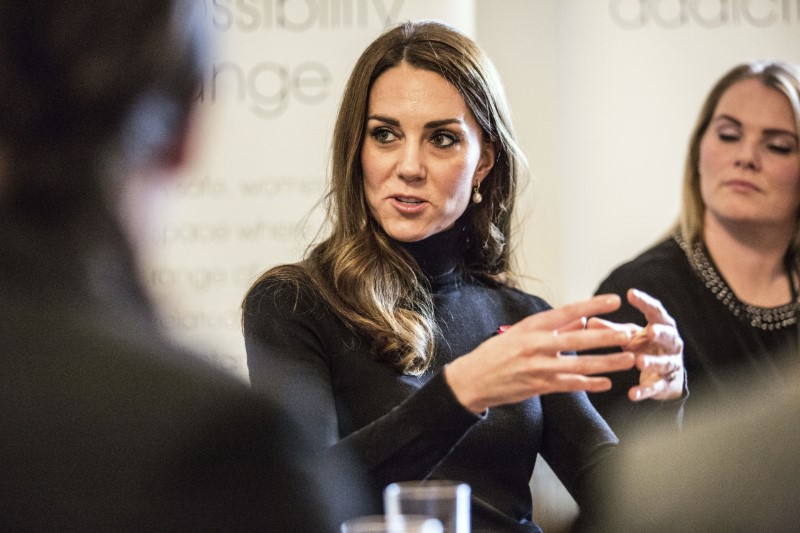PARIS (Reuters) - A French court ruled on Tuesday that celebrity magazine Closer invaded the privacy of Britain's Prince William's wife Kate, the Duchess of Cambridge, when it published topless photos of her in 2012.
The court handed the maximum fine of 45,000 euros ($53,500) to both Laurence Pieau, an editor of Closer's French edition, and Ernesto Mauri, chief executive of Italian publisher Mondadori (MI:MOED), the magazine's owner.
William and Kate, who announced on Monday that they were expecting a third child, said they were pleased with the court ruling and the matter was now closed.
Closer magazine, a weekly round-up of gossip about the rich and famous, published a series of topless photos of Kate, the wife of the second-in-line to the British throne, while on holiday in southern France.
Two photographers from a Paris agency, who denied taking the photographs, were ordered to pay smaller fines after also being convicted under French privacy laws.
The damages ordered by the court were well short of the 1.5 million euros sought by the royal couple, a subject of fascination for many in Britain and other parts of the world, who filed the suit for what they called at the time a "grotesque" breach of privacy.
"This incident was a serious breach of privacy, and their Royal Highnesses felt it essential to pursue all legal remedies," a spokeswoman for the couple said. "They wished to make the point strongly that this kind of unjustified intrusion should not happen."
The photos were taken as the royal couple relaxed on a balcony of a chateau in the picturesque Luberon region of southeastern France.
The pictures rekindled memories for some in Britain of the media pursuit of William's mother, Princess Diana, who died in a car crash in Paris in 1997 while being chased by paparazzi.
Closer magazine's lawyers had sought to justify publication of the photos on public interest grounds, saying they disproved rumors circulating at the time that Kate might be anorexic.
Jean Veil, a prominent French lawyer hired by the Duchess of Cambridge, said during the trial the article that accompanied the photos was only a pretext for publishing the pictures.
